Iranian Politician Calls For Intervention If Israel Enters Gaza
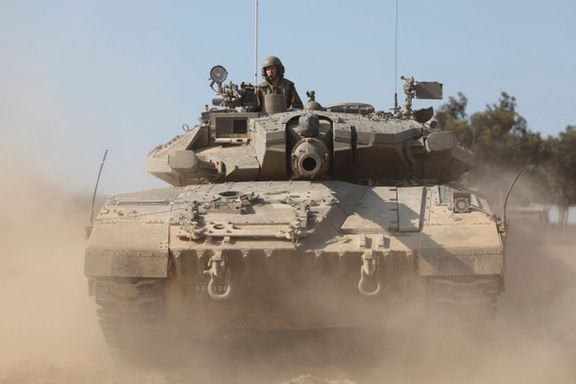
A senior conservative Iranian politician has said that if Israel launches a ground offensive in Gaza, Iran’s other proxy forces should join the war.

A senior conservative Iranian politician has said that if Israel launches a ground offensive in Gaza, Iran’s other proxy forces should join the war.
Iranian media on Sunday quoted Ali Motahari, former deputy speaker of the Islamic Republic’s parliament, who often appears as a voice of moderation on some issues, called the Lebanese Hezbollah and Syria “Iran’s forces”.
He stated that “We should not be indifferent until the operation starts,” and added that Iran’s allies should “play a deterrent role.”
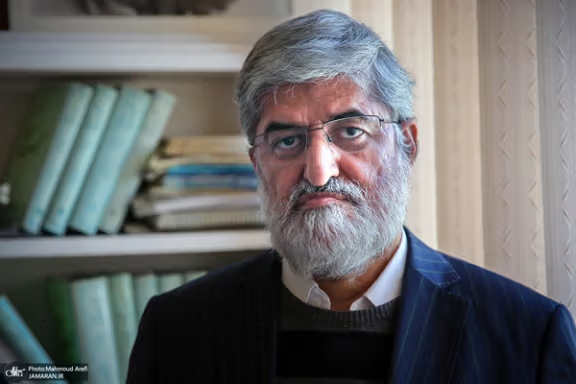
Motahari called for “all the means prepared in past years should be deployed. Naturally, such plans should already exist. Mr. Amir-Abdollahian’s [foreign minister] trip to Syria and Lebanon showed that such coordination is taking place. He did mention that if a ground attack takes place against Gaza, others in the resistance front will become active.”
Hossein Amir-Abdollahian who visited Qatar on Saturday met Hamas chief Ismail Haniyeh, leading to calls by many observers for the United States to push Qatar to distance itself from Palestinian militants.
A senior Israeli official accused Iran on Sunday of trying to open a second war front by deploying weapons in or through Syria as Israel steps up its counter-offensive in Gaza to the south.
Responding to a post of the X social-media platform that posited such a scenario, Joshua Zarka, head of strategic affairs for Israel's Foreign Ministry, said: "They (Iranians) are."
The original post also said "the Israelis are determined to prevent" such developments. To that, Zarka responded" "We are."
Syria accused Israel of carrying out strikes against Damascus and Aleppo airports last week.
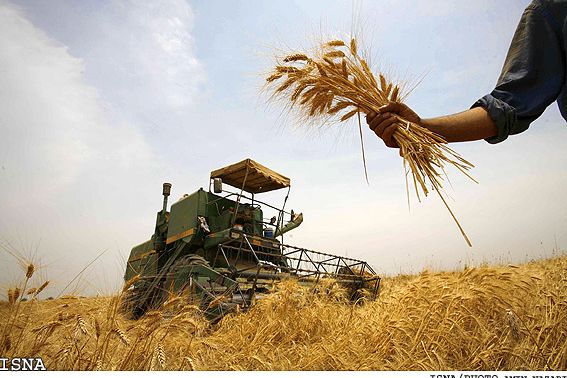
The Iranian government’s failure to announce new “guaranteed purchase prices” for wheat and full payment for last year has led to a delay in next season’s cultivation.
Iran's Supreme Leader Ali Khamenei has always encouraged self-sufficiency in wheat production as a strategic crop. The government purchases farmers’ crops at a guaranteed price announced before the beginning of every crop year towards this goal.
Bread, which is heavily subsidized, is a major staple in the Iranians’ diet the shortage of which may instigate massive popular discontent or even protests and riots.
In the past few weeks, government officials have repeatedly claimed that the new prices, which should have been announced by July 22, would be revealed “soon”. But nearly three weeks after the start of Iran's farming year (September 23) confusion still reigns and many wheat producers have not begun planting winter seeds for harvest in spring, unsure whether new rates will justify higher production costs resulting from inflation.
Meanwhile, Arsalan Ghasemi, chairman of the agriculture and food industries committee of the Agricultural Trade Chamber told Fars news agency Friday that the Planning and Budget Organization has not authorized the payment of around 25 percent of the government’s debts to farmers for the crops purchased last year due to its allocated budget having run out.
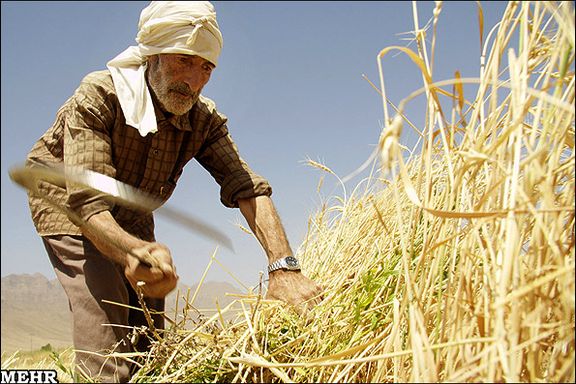
“Farmers will lose their trust [in the government] due to the Planning and Budget Organization’s approach. This is harmful to self-sufficiency in wheat and production of basic commodities in the country,” he said.
Iran has attained self-sufficiency in wheat production a few times since 2004 but in most years the government has had to import more than half of the country’s wheat required for bread, seed, and food industries. Wheat imports surged to seven million tons in 2013 and a record nine million tons 2021 when domestic crops were hit by the worst drought in the past fifty years.
Iranians consume over 160 kilograms of bread annually and rank second in the world per capita consumption of bread after Turkey. The country requires at least 14 million metric tons of wheat for bread and production of other foodstuff such as pasta.
According to Deputy Agriculture Minister Mojtaba Khayam-Nekouei, the government purchased 9.7 million tons of wheat from farmers at the guaranteed price of 150,000,000 rials per ton (under $500) during the previous crop year. This is roughly competitive with international market prices.
Farmers demand a much higher payment for the current year arguing that Iran’s 50-percent annual inflation has hugely increased all their production costs including labor.
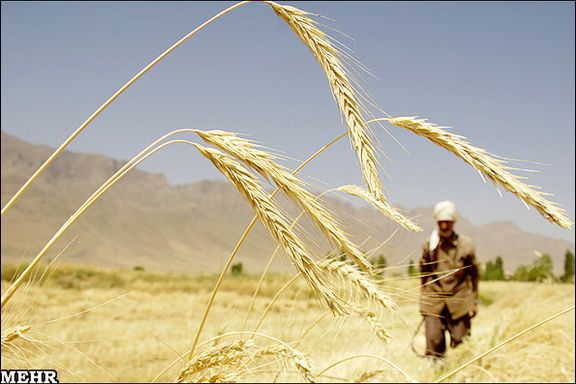
Jafar Hosseini, an advisor to the Chamber of Agricultural Unions, said Friday that the government’s guaranteed price, which it was supposed to announce before July 22, has been set at 195,000 rials per kilo. He said anything less could dissuade farmers from planting. According to Hosseini, other farmers including those producing oil seeds are facing similar problems as wheat producers.
Bread prices have jumped by up to 40 percent in most provinces since March despite officials underlining before that the price of bread was President Ebrahim Raisi’s “redline”. The hike in the price of bread was a result of a government decision to scrap the subsidy for imported wheat, flour and other essential items.
Iran is among the world’s top twenty producers of wheat. The country ranked 12 globally in 2022 with 15 million tons and also a major importer.
In recent years the area under wheat cultivation has increased to around five million hectares nearly 3.5 million hectares of which is rainfed.
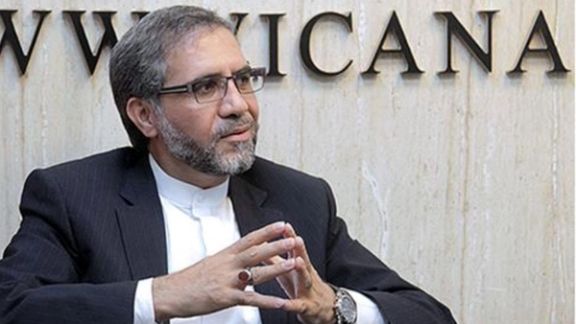
A member of Iran's National Security Committee in the Parliament admitted Washington has warned the regime off involvement in the conflict which has already claimed thousands of lives.
Abbas Golroo said, "The Americans ... sent us a message not to get involved in the war".
Shortly after the attack launched when thousands of Hamas militants infiltrated Israel by land, sea and air, the US began moving warships and aircraft to the region in support of Israel and as a warning to the regime.
On Friday, a second carrier strike group will begin making its way to the Mediterranean in addition to scores of aircraft already heading to US military bases around the Middle East.
Munitions have already arrived in Israel and special operations forces are now assisting Israel’s military in planning and intelligence.
While thousands of Israelis and Palestinians are dying in the war declared by Hamas last Saturday in the single most deadly day in Jewish history since the Holocaust, he said the Hamas onslaught is a “legitimate defense” as per the United Nations Charter.
He made the remarks on Saturday as the regime's top leadership expressed solidarity with the terror group for the unprecedented attack which took Israel by surprise on a religious holiday in a haunting reminder of the Yom Kippur War 50 years ago.
“The operation carried out by Palestinians was notably intricate, involving elements of cyber warfare, drones, aerial assaults, ground advancements, and field actions," he said. "It was executed with an element of surprise, resulting in casualties and significant damage to Israel.”
Golroo added that the Islamic Republic has consistently shown support for Palestine, and it has provided assistance, indicating a long-standing commitment to the Palestinian cause.
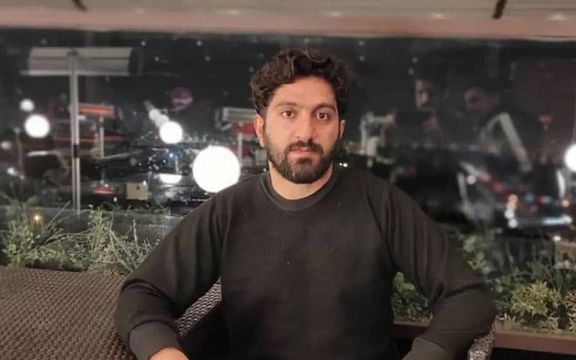
A member of Iran's Yarsan religious minority has been sentenced to death for trumped up charges of murder.
Reza Rasaei was handed the death penalty by the second branch of the Kermanshah Province Criminal Court on Friday. He was accused of the murder of Nader Beirami, head of the Intelligence of the Revolutionary Guards in Sanandaj, during a violent protest last November.
According to Dadban, a group of pro-bono lawyers in Iran dedicated to defending political prisoners and rights activists, Beirami was killed following a clash between security and law enforcement forces and protesters.
Approximately one week after the incident, Rasaei and ten other citizens were arrested on charges of participating in the assault and injury of Beirami solely for their presence at the protest.
Security authorities attributed Beirami's murder to Rasaei without any evidence, witnesses, or documents, as reported by various human rights organizations including Dadban and Hengaw.
The spokesperson for the judiciary of the Islamic Republic had previously announced that 52 individuals had been arrested in connection with Beirami's murder.
The Yarsan faith, also known as Ahl-e Haqq, is one of the oldest Middle Eastern religious traditions with about three million followers in Iran, primarily in western Kurdish areas, and 120,000 to 150,000 in Iraq known as Kaka'i.
Yarsan adherents have encountered challenges, including the inability to register their children as Yarsan at birth, restrictions on building places of worship, and the fear of persecution for printing their holy book.
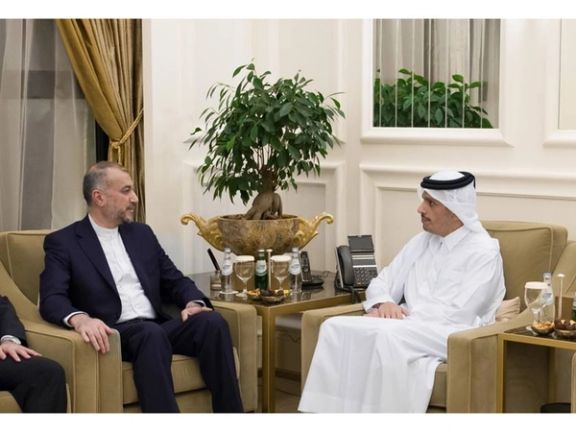
Iran’s president and foreign minister held separate talks with Qatar’s Emir and foreign minister respectively on Saturday, discussing the conflict between Israel and Hamas.
President Ebrahim Raisi held a telephone call with Sheikh Tamim bin Hamad Al Thani, the Emir of Qatar. The two sides praised bilateral ties and discussed what the situation of Gaza, where Israel is preparing a ground offensive.
While the Iranian president accused Israel of genocide and condemned the United States for rendering support to the Jewish state, the Qatari Emir emphasized that without the realization of Palestinian rights there would be no stability in the region.
Iran foreign minister Hossein Amir-Abdollahian arrived in Qatar, after a regional tour of Iraq, Lebanon and Syria. He held talks with Prime Minister and Minister of Foreign Affairs Sheikh Mohammed bin Abdulrahman bin Jassim Al-Thani.
A video on social media also showed the Iranian foreign minister meeting Hamas leader Ismail Haniyeh in Qatar.
Qatar’s official news agency reported that Sheikh Jasem al Thani “stressed, during the meeting, the necessity of working towards an immediate ceasefire, protecting civilians and releasing prisoners, and the danger of the expansion of violence and the cycle of conflict in the region, which will have dire consequences if it expands.
The Iranian and Qatari official media did not provide more information about the details of discussion between the top leaders and chief diplomats of the two countries. Amir-Abdollahian earlier in Lebanon threatened that Iran’s proxy forces are ready to join the conflict.
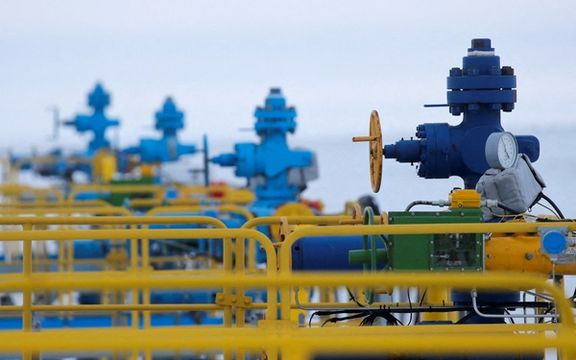
While none of the dozens of deals between Iranian and Russian oil companies over the past decade have been implemented, Russia now intends to export gas to Iran.
It should be noted that due to European sanctions, Russia faced serious challenges in selling natural gas. Simultaneously, during the three-day visit of Iran's Minister of Petroleum, Javad Owji, to Moscow this week to participate in the "Russian Energy Week" summit, Russian President Vladimir Putin, stated that "Tehran is in negotiations with Moscow to purchase gas.”
Previously, the agreement for Iran to purchase gas from Russia, along with several other agreements on developing oil and gas fields, constructing liquefied natural gas (LNG) plants, and investments in other energy sectors, was signed during the visit of a Gazprom delegation to Iran in July 2022.
While Iran proudly announced the signing of the "largest oil and gas agreements in the country's history worth $40 billion," Russia has not converted any of these memorandum of understandings (MoUs) into contracts and is now only negotiating the sale of gas to Iran.
About a decade ago, Iran also signed dozens of oil and gas MoUs with various Russian companies, none of which were executed.
Russia can potentially export 12 billion cubic meters (bcm) of gas annually to Iran via the Russia-Turkmenistan gas pipeline, which extends from the Turkmen Dowlatabad gas field on the border with Iran to Sarakhs-Khangiran.
Another older pipeline with an annual transfer capacity of 8 bcm/y of gas from Turkmenistan to Iran exists, but it is not connected to the Russia-Turkmenistan gas pipeline. However, Russia can use this pipeline to deliver additional gas to Turkmenistan and Iran can take Turkmen gas through swap.
Iran is currently facing a substantial gas shortage during the winter, and this gas can be used to offset domestic shortfalls and fulfill its gas export commitments to Iraq and Turkey.
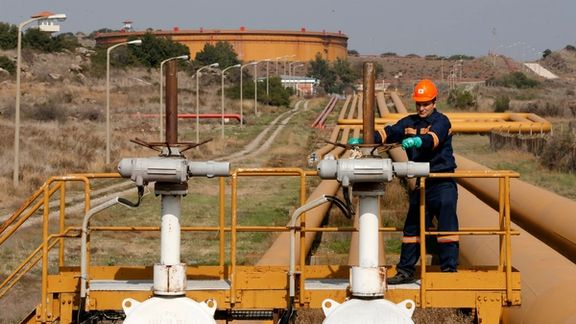
Iran’s dreams and Russia’s financial problems
Iran's hope lies in investments from Russia's Gazprom, despite the company's official financial report indicating that its revenues in the first half of 2023 was only 296 billion rubles (approximately $3.1 billion), which is 8.4 times less than the same period last year. This figure also represents nearly one-third of the company's gas sales income in the first halves of previous years before Russia's invasion of Ukraine.
Furthermore, Gazprom's debts have risen from 5 trillion rubles in July 2022 to 6 trillion rubles in July of this year, equivalent to $61 billion.
Additionally, Russia's total income from oil and gas exports in the first half of this year has dropped by 47% compared to the same period last year, reaching just over $37 billion. In this context, Iran's expectation for Gazprom or the Russian government to invest in the country's oil and gas fields seems unusual.
Moreover, some of the MoUs signed between Gazprom and Iran in July last year relate to projects for which Russia lacks the required technology. These projects include the pressurization of the South Pars gas field, involving the construction and installation of 20,000-ton platforms and large compressors as well as LNG facilities. Russia's own semi-finished LNG projects have been halted after foreign companies withdrew due to Western sanctions.
On the other hand, Iran is a potential rival for Russia in global oil and gas markets. Following Russia, Iran possesses the world's second-largest gas reserves, and its oil reserves surpass Russia's by as much as 30%.
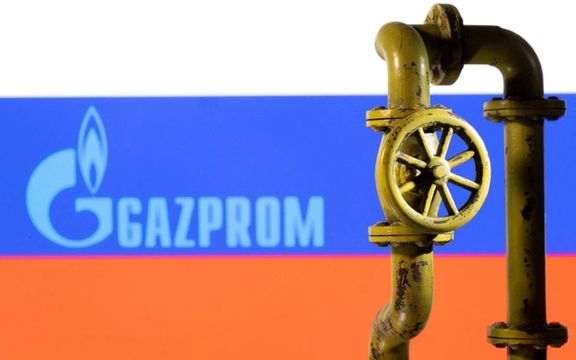
Imports of Petroleum Products
Iran, which has been facing gasoline and diesel shortages since the summer of last year, has begun importing these petroleum products from Russia since March 2023.
Iranian oil minister claimed on October 13 that the country has implemented the second phase of the Abadan refinery with a capacity of 210,000 barrels and operated the Isfahan refinery's diesel unit with a daily capacity of 20 million liters over the past few months.
Despite this claim, the diesel purification unit at Isfahan refinery, operating since March 2023 is aimed to reduce sulfur content, not additional diesel production.
According to an Iranian Oil Ministry’s official report, obtained by Iran International, the country's diesel production in April and May of this year not only did not show growth but it decreased by 1.2% compared to the same period last year, reaching 108 million liters per day.
On the other hand, contrary to Javad Owji’s claim, the data from the report shows that the government has set a daily crude oil refining target of 370,000 barrels for the Abadan refinery for the current year, which does not represent an increase compared to the previous year. The Abadan refinery, an ancient facility with over a century of history, is Iran's largest crude oil refinery, which, the report says converts 47% of the received crude oil into highly polluting fuel oil and bitumen.
Iranian efforts to work with Russia on energy issues create a complicated situation that needs serious examination. The history of unfulfilled agreements between the two countries highlights the difficulties and ambiguities that such partnerships confront. Although the latest Russian announcement of gas deliveries to Iran is interesting, it is important to remember the previous difficulties with agreement implementation. The discrepancy between Iran's fervent declarations and Russia's hesitation to turn memoranda into contracts points to a persistent problem.
A workable solution to Iran's acute gas deficit is the ability for Russia to transfer gas through already-existing pipelines. Iran's present domestic gas scarcity is a serious issue that must be addressed, especially during the winter.
According to an another official report, prepared by Iran’s National Petrochemical Company, obtained by Iran International, the country’s petrochemical plants worked with 70% of their capacity during last year, due to shortage of natural gas.
To meet Iran's energy demands and fulfill its international gas export responsibilities, it may be possible to obtain more gas from Russia, either directly or through gas swaps with Turkmenistan.
In conclusion, overcoming challenges and resolving unfulfilled commitments from the past is necessary to realize Iran's aspirations for an energy partnership with Russia. Success depends on converting intentions into concrete agreements that are in line with Iran's larger energy and economic objectives, including resolving gas shortages. Iran must carefully weigh the complications and unknowns associated with Russia's energy cooperation.
Contributors: